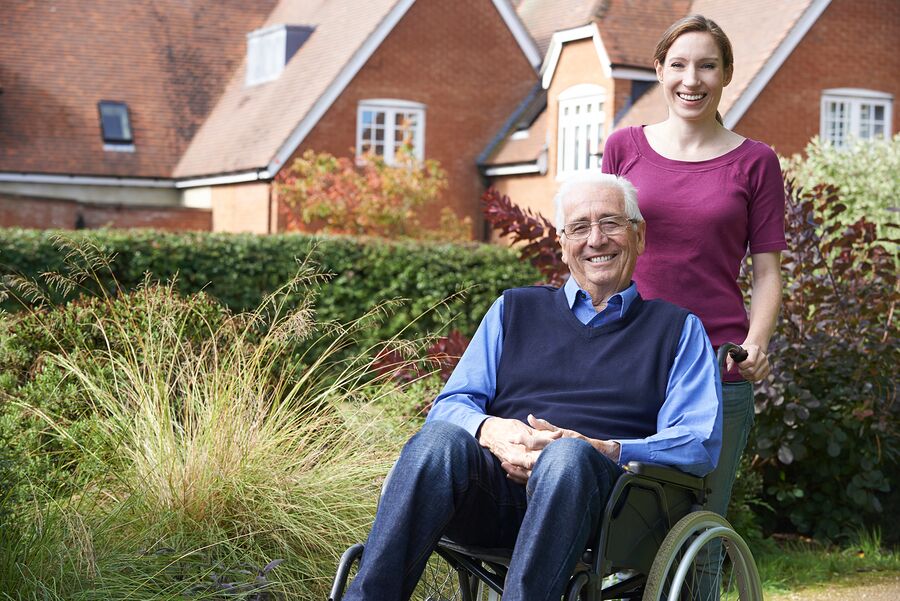Tips for Helping Your Children Understand Your Parent’s Brain Injury

Do You Have More Help than You Think?
May 4, 2018
Hiring Home Care Providers for Post-Surgery Care
June 8, 2018Tips for Helping Your Children Understand Your Parent’s Brain Injury
Being a family caregiver for an elderly adult can be very challenging, particularly when you are also caring for your children. Referred to as the sandwich generation, this is the reality for a large percentage of the middle-aged adults of the United States. When you are caring for an elderly adult and children the stress often comes from trying to balance the needs of both groups and creating a schedule that works for both. Another challenge, however, can come when your aging parent is dealing with a health issue that impacts their well-being, function, or even aspects of their personality. Explaining this issue is an important aspect of keeping your children informed, helping them to feel confident and secure, and supporting your care efforts for them.
Use these tips to help your children understand your parent’s traumatic brain injury and its effects:
-Recognize that children are stronger and more resilient than many people think. This means that they are capable of understanding what is happening if you take the time to explain it to them in an effective way. It also means that they deserve to be spoken to honestly and with respect rather than ignored, overlooked, and condescended.
-Approach the topic in an age-appropriate way. If you have children of vastly different ages, consider speaking to each of them separately so that you can be more thorough with the older children and take more time with the younger ones.
-Consider approaching the topic with a story or a comparison. Talking about the brain as a “command center” or “motherboard” can help them to visualize the importance and complexity of the brain, as well as the impact of a part being damaged.
-Reassure your children that any changes that have come over your parent after their injury are not contagious and that they have nothing to do with your children. This can be particularly important if your parent has had a change in personality or cognitive functioning as a result of their injury
-Explain the changes in the type of care that your parent will need, including involving a senior care provider and extra time that you will need to devote, as well as ways that your children can help.
-Encourage them to ask questions and work with them to find the answers so that they feel more secure and informed.
Starting senior care for your aging parent can be one of the best decisions that you make for them in the course of your caregiver journey. A senior home care services provider can be in the home with your parent on a schedule that is customized not just to them and their individual needs and challenges, but also to you and the amount of care that you give them on a regular basis. This means that they will always have access to the support, care, and assistance that they need, while also keeping you at the forefront of their care routine.
The highly personalized services the care provider will give to your parent are specifically designed to not only address their needs and limitations in the ways that are right for them, but also to encourage them to maintain as much independence as possible and support activity, engagement, and fulfillment as they age in place.
Are you or a family member considering Elder Care in Folsom, CA? Talk to the friendly staff at Golden Years In-Home Senior Care. Call Us Today 916-333-0383. We are here when you need us!
Source:
CDC.gov
Brainline.org/caregiverbasics
Brainline.org/familyconcerns
Brainline.org/caregiveremotions



